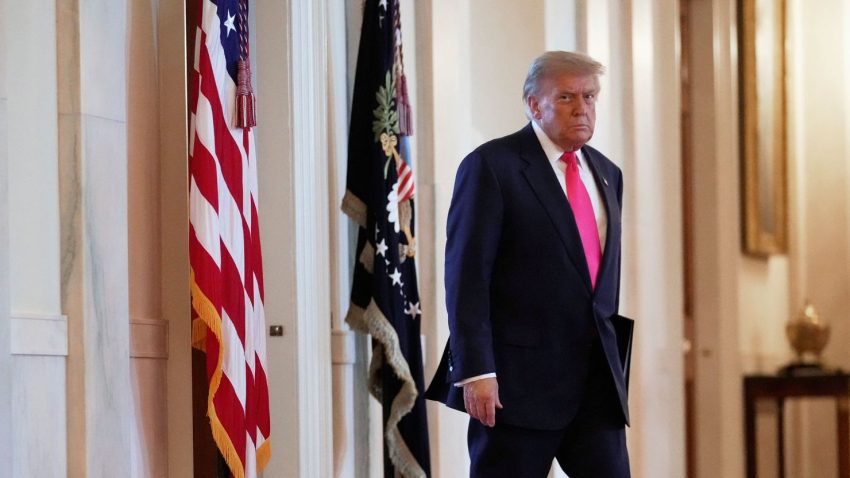The United States Senate has begun an intense legislative push to advance former President Donald Trump’s expansive new bill, informally titled the “Big Beautiful Bill.” At 940 pages, the bill outlines sweeping tax cuts, drastic spending reductions, and increased funding for border enforcement and deportation programs.
The bill marks a pivotal moment in Trump’s second presidential term, aiming to redefine the nation’s fiscal and immigration priorities. But while it energizes his base, it has also triggered waves of concern across party lines.
Senate Narrowly Advances Bill
In a dramatic late-night session, Senate Republicans narrowly cleared a critical procedural vote by 51–49, enabling the full debate to begin. Some conservative senators who had initially hesitated were convinced to fall in line, with Vice President J.D. Vance reportedly prepared to cast a tie-breaking vote had it been needed.
The narrow margin reflects both the urgency and controversy surrounding the legislation. Trump has insisted on having the bill finalized before July 4, making this week a high-stakes political sprint.
Budget Office Sounds Alarm
According to an independent analysis by the Congressional Budget Office, the proposed legislation could add an estimated $3.3 trillion to the national debt over the next decade. In addition, it is projected to result in approximately 11.8 million more uninsured Americans by 2034, largely due to cuts in Medicaid and food assistance programs.
These projections have prompted alarm among moderate Republicans and Democrats alike, with concerns mounting over how the bill could affect the country’s most vulnerable populations.
Republican Party Divided
Tensions within the Republican Party have become increasingly visible. Senator Thom Tillis of North Carolina, who has voiced opposition to the Medicaid cuts, announced he will not seek re-election—further fueling speculation of internal party unrest.
Trump responded publicly to the backlash, warning Republicans not to “go too crazy” and arguing that economic growth would compensate for any short-term losses. The former president remains defiant, continuing to campaign on the promise of fiscal discipline, border control, and an “America First” economic strategy.
The Road Ahead
With the procedural vote out of the way, the Senate is now engaged in what is expected to be a marathon debate session. Lawmakers will have up to 20 hours to deliberate, followed by a series of amendment votes.
The fate of the bill remains uncertain. While the Trump administration pushes forward with confidence, critics warn of long-term economic instability, reduced healthcare access, and political fallout that could shape the upcoming 2026 midterms.
Why It Matters
This bill is more than a legislative package—it is a symbolic declaration of Trump’s enduring influence on American politics. It represents a return to aggressive budget cuts and border policies, a hallmark of his first presidency, now repackaged in an era of rising populism and economic anxiety.
The coming days will determine whether Trump’s bold legislative gamble succeeds—and what kind of future it creates for millions of Americans.




